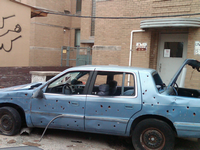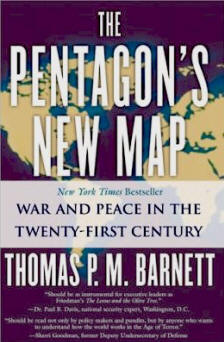OPINION: "Obama's Foreign Policy Paradox," by Matthew Kaminski, Wall Street Journal, 12 March 2010.
OPINION: "Road to the Nut House," by Peggy Noonan, Wall Street Journal, 13-14 March 2010.
WORLD NEWS: "Israel-US spat adds to rising view of Obama as pushover: The White House effort to get peace talks going again is floundering," by Edward Luce and Daniel Dombey, Financial Times, 13-14 March 2010.
Kaminski's argument: the oddity that Obama is doing well on the wars (Iraq & Afghanistan--although calling the former a "war" gets awfully old and inaccurate) but doing poorly everywhere else. The latter situation feeds the perception of weakness, which contradicts what should be a perception of war-leader strength.
So the jury is out on the "paradoxical" Obama. Will he go down as a kowtower to dictatorships or the job-finisher in Iraq and Afghanistan?
My sense of the linkage between the two: Obama is surprisingly go-it-alone in both realms. America is forging its withdrawal in Iraq on its own, and largely fighting its way to hoped-for success in Afghanistan on its own. Yes, in both instances there are allies galore standing nearby, but the show remains ours--as do all the key decisions. Ditto for the reach-outs to various regimes. Other than the elevation of the G-20, these efforts all strike me as rather tightly held enterprises.
All this fits the image of a tightly self-controlled White House manned by Obama and his four top lieutenants (Jarrett, Gibbs, Emmanuel and Axelrod). It also fits the my-way-or-the-highway omnibus method of domestic legislation.
In short, despite all the great rhetoric about a multi-partner world, there is a strong bilateralist tone to this administration--right down to the special ambassadors, with multilateralism seeming to be America working everybody to get what it wants and those "wants" constituting our multilateral vision--sort of slapped-together omnibus feel there too. It's simply the headlines I'm reading.
And then you read Noonan's take on the "Game Change" election history book and you get this disturbing take that seems to feed the controlling impression:
Barack Obama, who interestingly gets the best treatment in the book--protect those sources!--is not immune [to criticism]. He is smart, "and he not only knew it but wanted to make sure everyone else knew it." In meetings with aides, he controlled the conversation by interrupting whoever was talking. He is boastful, gaudily confident. Before his 2004 convention speech, a reporter asked him if he was nervous: "I'm LeBron, baby," he answers. "I got some game."
I wince at that description, especially the interrupting part. That is ego unbridled, in my experience. True leaders, I find, are more quiet during presentations and debates and then weigh in decisively at the end; the weaker the decision-maker, the more frequently he interrupts. Just something that jumped out at me, in part because I had the same impression from his townhall meeting with legislators on healthcare that was broadcast--long before I read Noonan's take on the book. He seemed to have a pathological need to dominate the dialogue--beyond the presidential prerogative, like dominating the process equaled dominating the outcome.
The Luce and Dombey bit about "who's in charge?" misleads, in my mind. I fear that Obama is far too in charge and that what we suffer is underempowered subordinates, the result being a profound lack of strategic imagination. Where are the bright lights of this administration on foreign policy? I mean, we've got names and reputations, but other than the apology tour, the flow of big ideas internationally is non-existent. It seems they're all used up domestically and we're seeing a commensurate neediness on the foreign policy side that everyone--friend and foe alike--are picking up.
Obama did a great job of darn near instantly recalibrating our relationship with the world, and I can understand the tight control on that process, but now's the time to turn the assembled talent loose, and so far this does not seem to be the case.
I sense a flood of bitter memoirs coming in 2013, and that most will be painfully on-target.





















